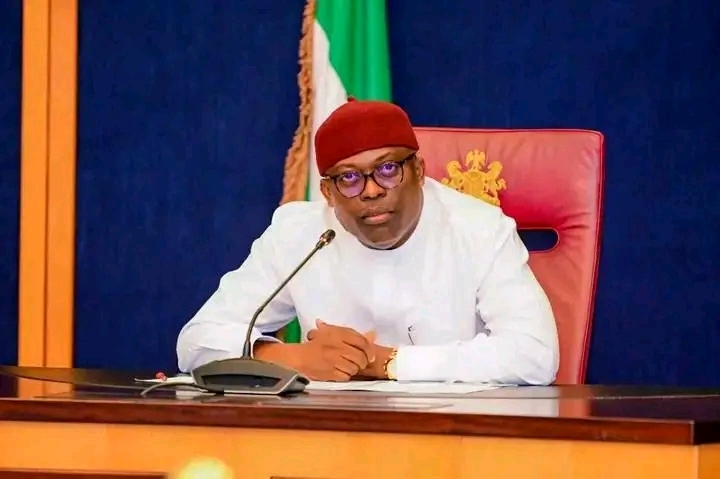This decision came hours after the President met with service chiefs and the National Security Adviser (NSA), Nuhu Ribadu, in Abuja.
President Bola Tinubu has declared a state of emergency in Rivers State amid the ongoing political crisis in the region.
Tinubu announced the proclamation during a nationwide broadcast on Tuesday, suspending Governor Siminalayi Fubara, his deputy Ngozi Odu, and all members of the State House of Assembly for a period of six months.
The President appointed Vice Admiral Ibokette Ibas (retired) as a military administrator to oversee the state’s affairs for the initial six-month period. Tinubu invoked Section 305 of the 1999 Constitution to justify the proclamation. This section defines a state of emergency as a situation of national danger or disaster, allowing the government to suspend normal constitutional procedures to restore order.
A state of emergency grants the President the authority to implement immediate regulations to ensure public safety and maintain order.
For nearly two months, the political feud and power struggle between the Minister of the Federal Capital Territory (FCT), Nyesom Wike, and his former political protégé, Governor Siminalayi Fubara, have escalated over control of the political machinery in the oil-rich state. The tension has reportedly led to pipeline explosions, while civil servants have threatened mass protests against the Martins Amaewhule-led faction in the State House of Assembly, which remains loyal to Wike.
Tinubu said, “The latest security reports made available to me show that between yesterday and today there have been disturbing incidents of vandalisation of pipelines by some militant without the governor taking any action to curtail them. I have, of course given stern order to the security agencies to ensure safety of lives of the good people of Rivers State and the oil pipelines.
“With all these and many more, no good and responsible President will standby and allow the grave situation to continue without taking remedial steps prescribed by the Constitution to address the situation in the state, which no doubt requires extraordinary measures to restore good governance, peace, order and security.
“In the circumstance, having soberly reflected on and evaluated the political situation in Rivers State and the Governor and Deputy Governor of Rivers State having failed to make a request to me as President to issue this proclamation as required by section 305(5) of the 1999 Constitution as amended, it has become inevitably compelling for me to invoke the provision of section 305 of the Constitution of the Federal Republic of Nigeria, 1999 as amended, to declare a state of emergency in Rivers State with effect from today, 18th March, 2025 and I so do.
“By this declaration, the Governor of Rivers State, Mr Siminalayi Fubara, his deputy, Mrs Ngozi Odu and all elected members of the House of Assembly of Rivers State are hereby suspended for an initial period of six months.
“In the meantime, I hereby nominate Vice Admiral Ibokette Ibas (Rtd) as Administrator to take charge of the affairs of the state in the interest of the good people of Rivers State. For the avoidance of doubt, this declaration does not affect the judicial arm of Rivers State, which shall continue to function in accordance with their constitutional mandate.
“The Administrator will not make any new laws. He will, however, be free to formulate regulations as may be found necessary to do his job, but such regulations will need to be considered and approved by the Federal Executive Council and promulgated by the President.










